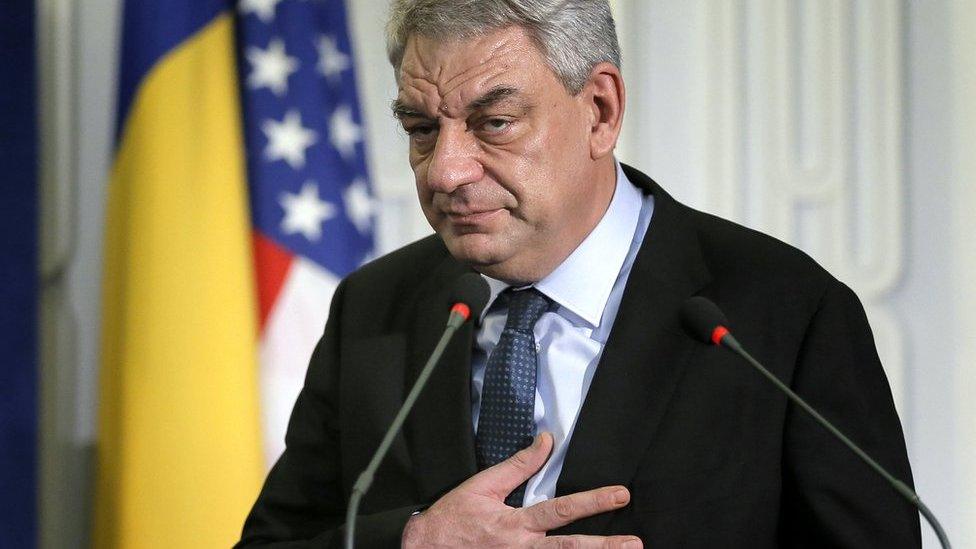Romania marriage poll: Referendum to ban gay unions fails
- Published
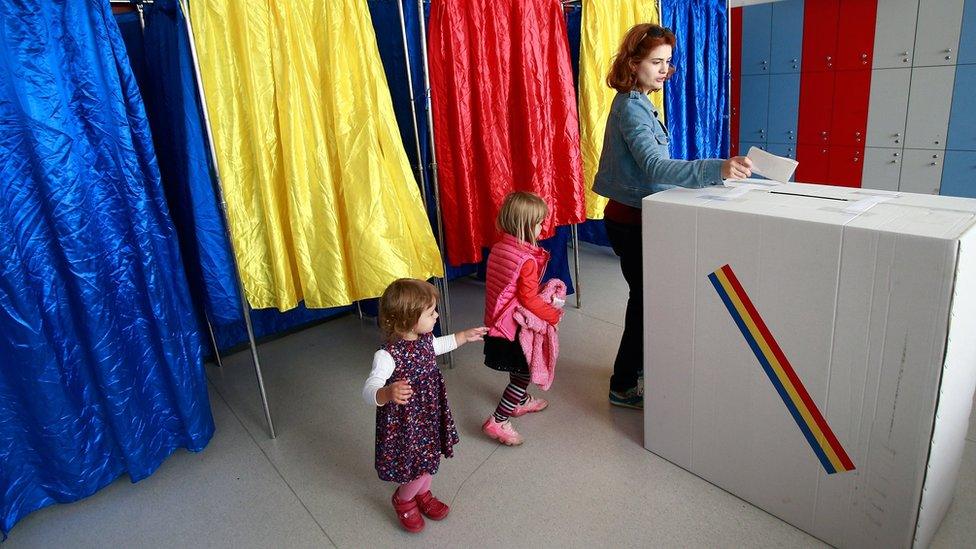
Just over 20% of voters cast a ballot in the referendum
A referendum to establish a constitutional ban on same-sex marriage in Romania has failed - after only a fifth of voters bothered to turn out.
Romanians were being asked whether they wanted the constitution changed to specify that marriage can only be between a man and a woman.
But just 20.4% of eligible voters cast ballots - short of the 30% needed.
The result may come as a surprise, as a poll on Friday indicated support for the change was as high as 90%.
Mihai Gheorghiu, president of the pro-referendum Coalition for Family, told the BBC ahead of the vote they were trying "to protect, at a constitutional level, the definition of marriage - between one woman and one man".
But after two days of voting, it seems the No campaign's strategy - to boycott the vote in the hope the turnout fell below the 30% needed to validate the referendum - was successful.
The low turnout comes despite the support of the powerful Orthodox church, and the unusual step by the government of extending the vote to two days instead of one.
The constitution will retain its current, neutral wording - that a family "is founded on the freely consented marriage of the spouses".
However, in practice not much will change: Romania does not recognise gay marriage or civil unions.
Dan Barna, of the opposition Save Romania Union, the only major political party to oppose the referendum, called for the government's immediate resignation for "wasting €40m ($46m; £35m) of public money on a fantasy".
The ruling Social Democrats had strongly supported the referendum.
The party's leader, Liviu Dragnea, was due in court this week to appeal against a jail sentence of three and a half years for his involvement in a fake jobs scandal - but his appeal was delayed for another month on Monday morning.
Opponents of the vote had suggested it was designed to distract the public from ongoing corruption scandals, and rally conservative support behind Mr Dragnea's party.
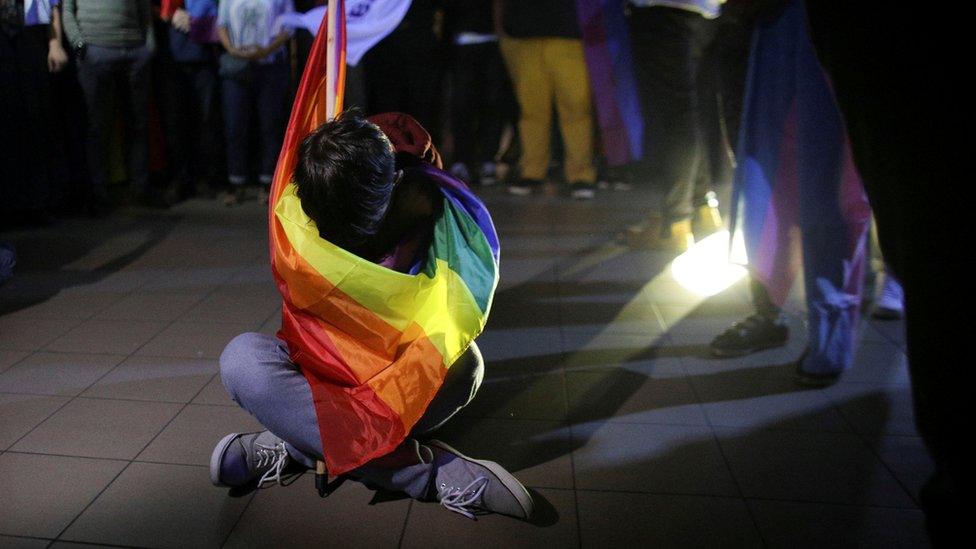
An emotional moment: An LGBT activist is pictured at a Bucharest event Sunday night
The president of LGBT rights organisation Mozaiq, Vlad Viski, called for the legalisation of civil partnerships in the wake of the failed vote.
"They must answer the people's wishes," he said.
Such a change may be on the cards - at the end of September, the constitutional court ruled that gay couples should have the same rights as heterosexuals.
It followed a June 2018 ruling by the European Court of Justice in favour of a Romanian man, Adrian Coman, who had married his American partner in Belgium. His partner had been denied a spousal visa when the pair had tried to move to Romania.
- Published6 October 2018
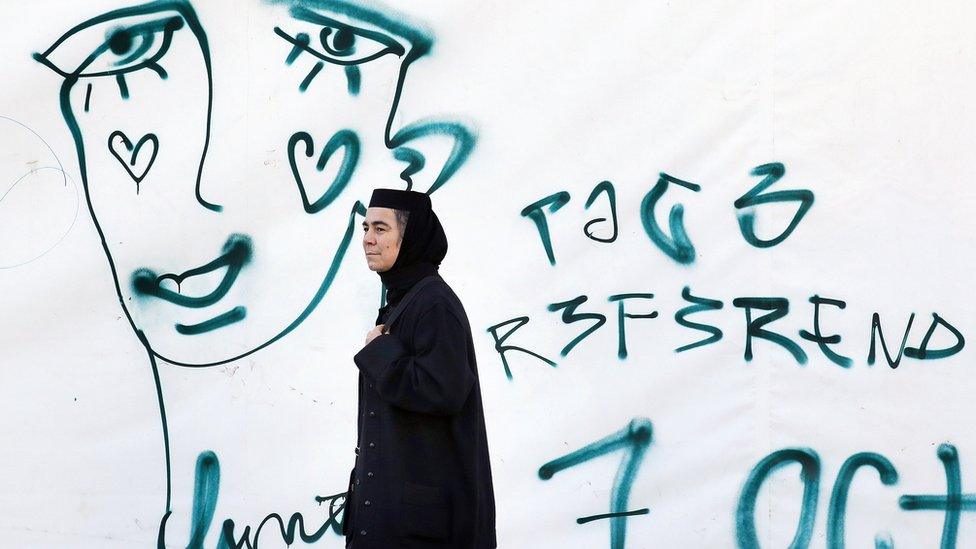
- Published18 December 2024
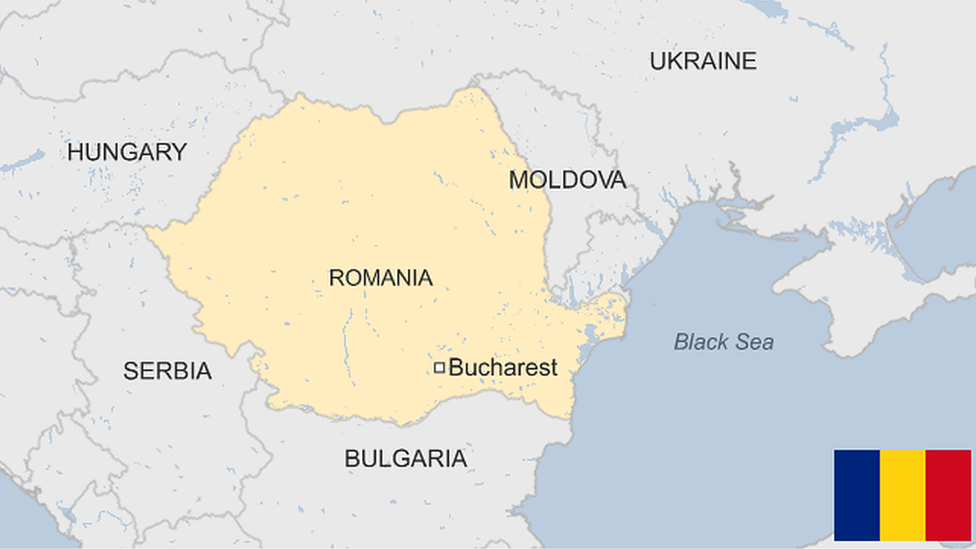
- Published2 February 2017
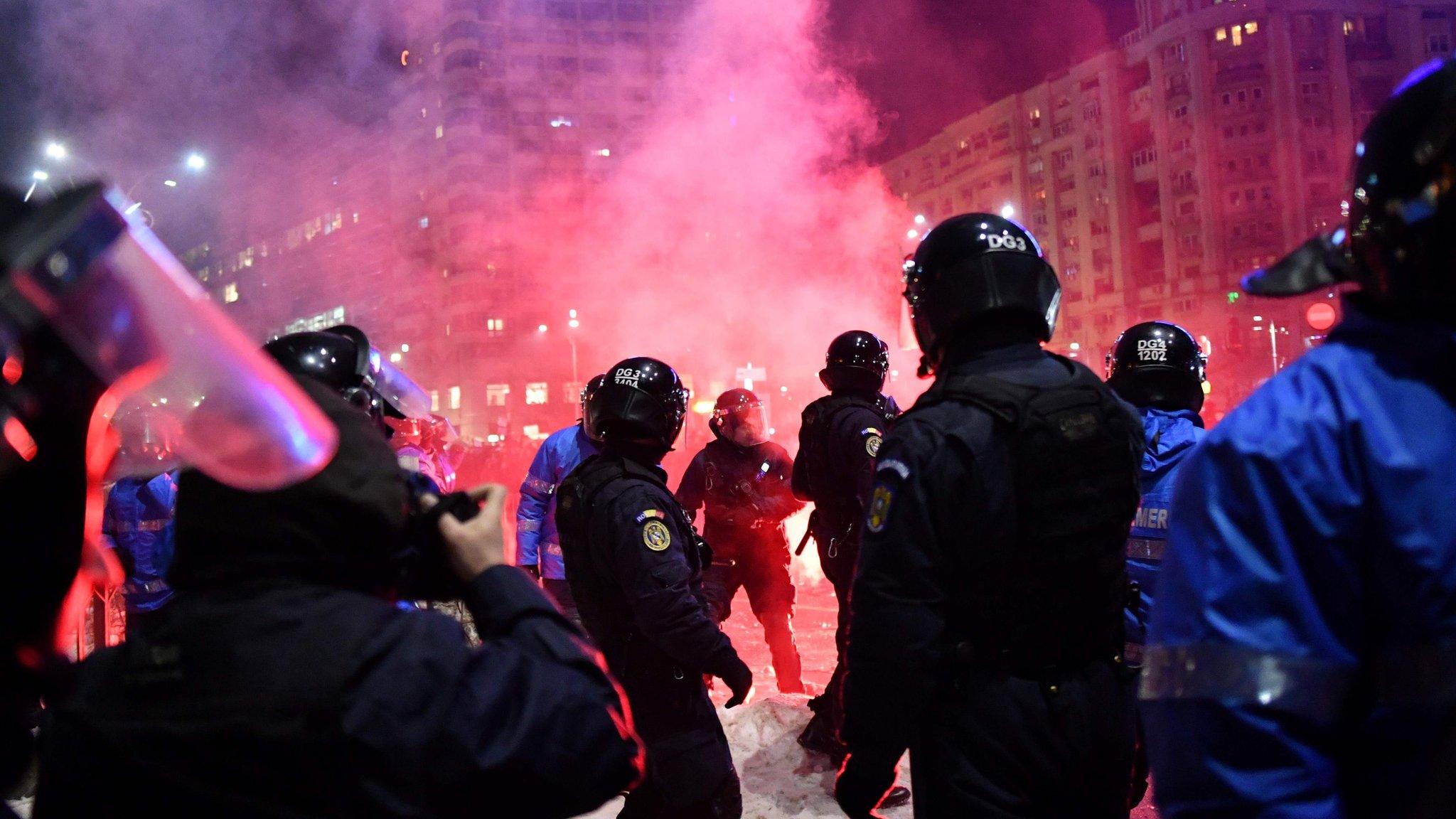
- Published5 June 2018
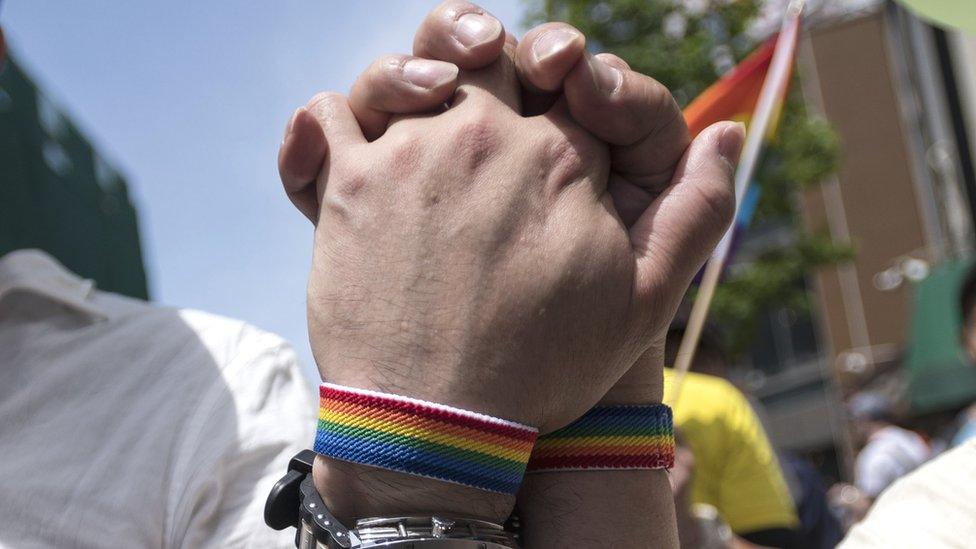
- Published5 February 2017
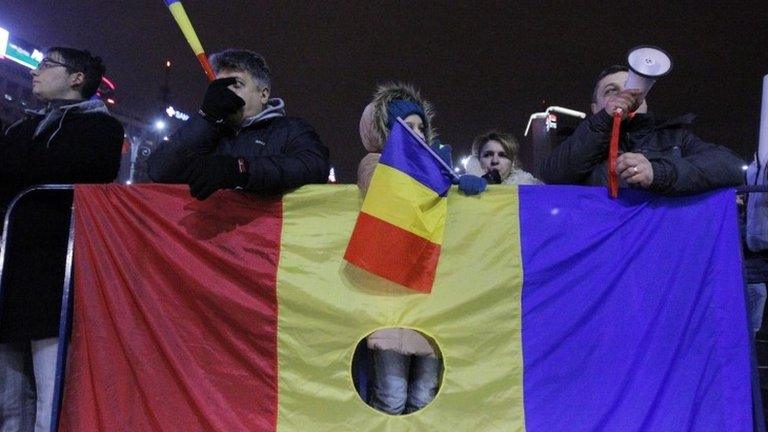
- Published11 August 2018
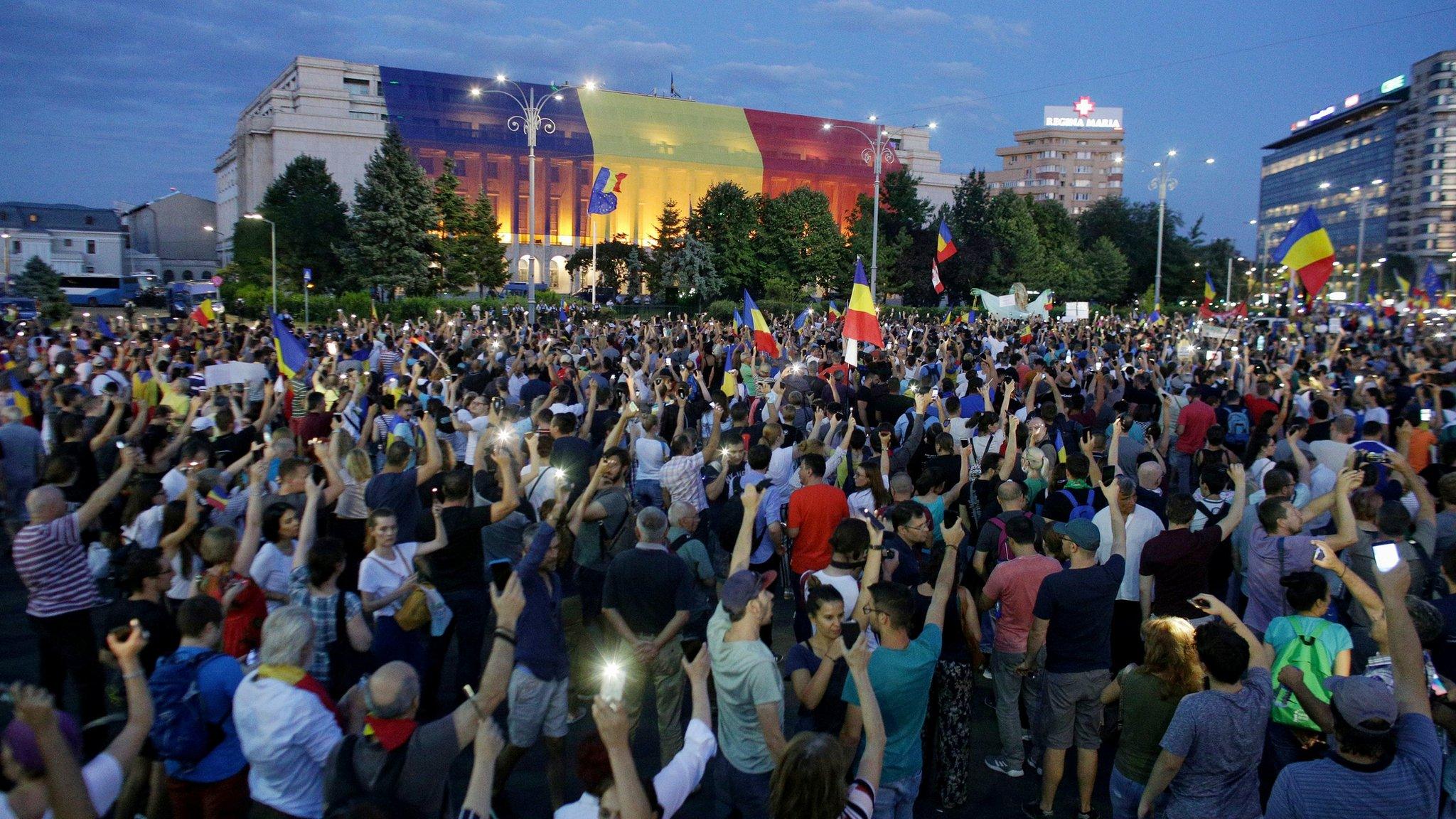
- Published10 August 2018
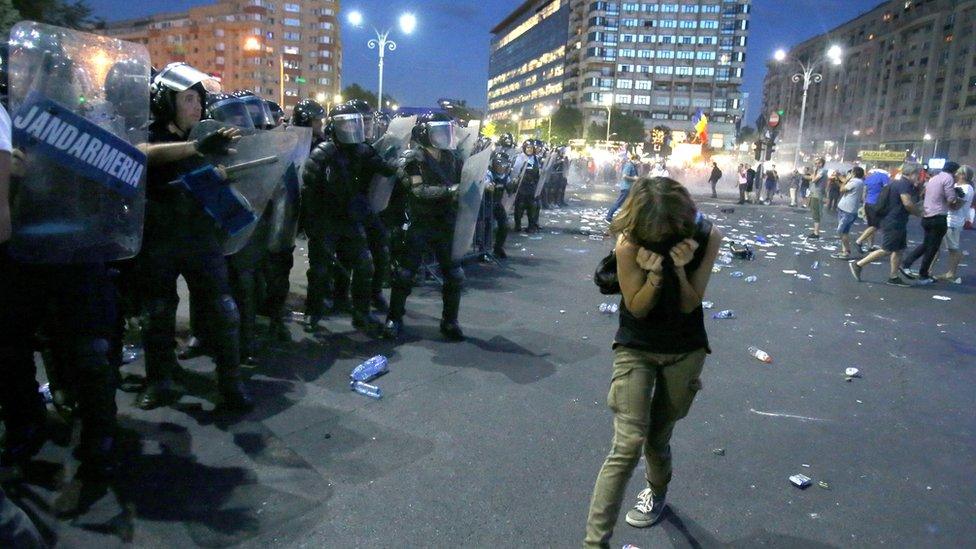
- Published17 January 2018
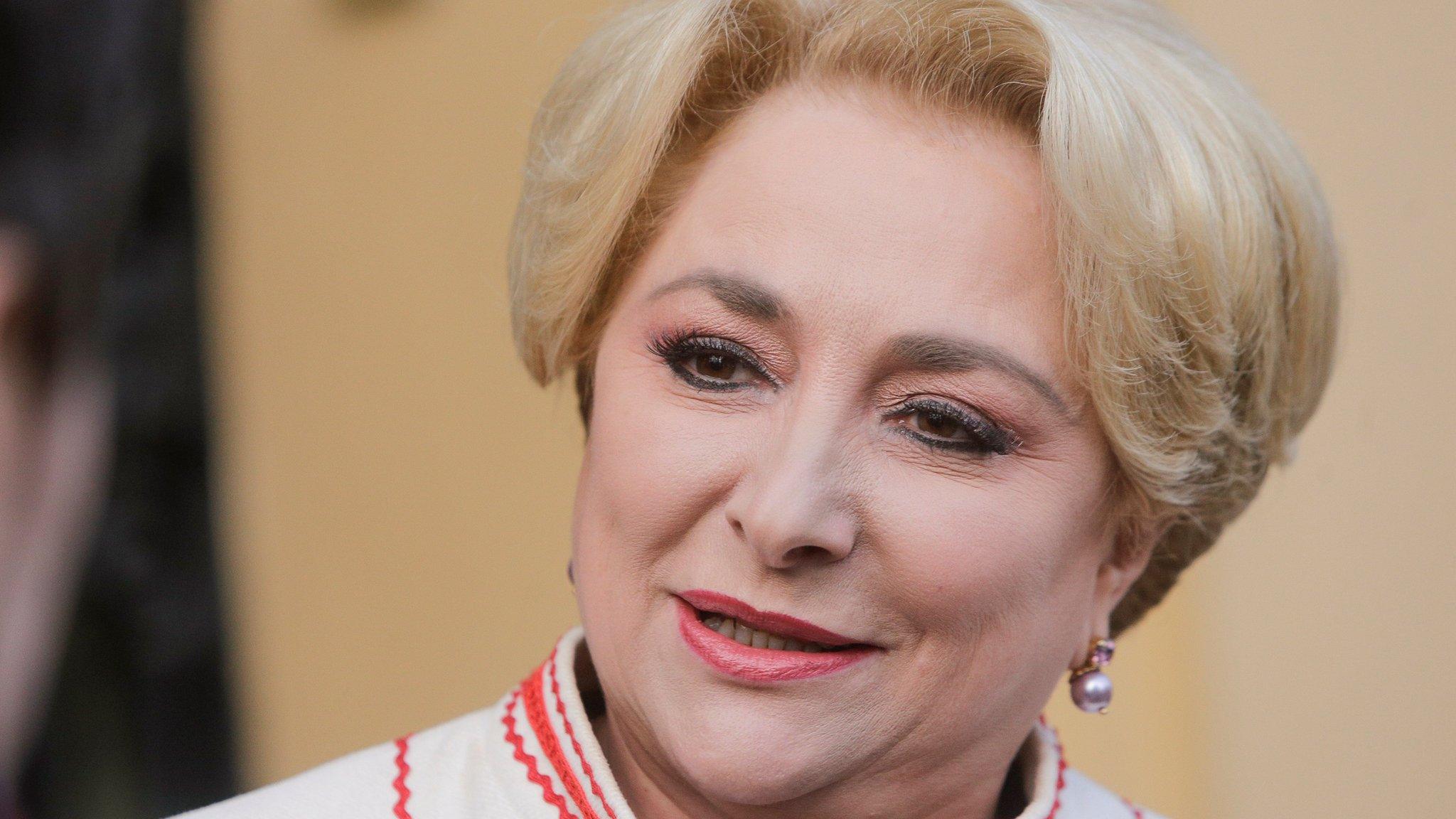
- Published15 January 2018
